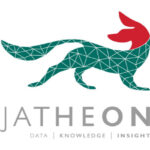In contemporary society, we find ourselves navigating an increasingly complex landscape characterized by rapid technological advancements and a myriad of emerging risks. The notion of a “new normal” has become a prevalent theme, particularly in the realm of security. As we advance further into this era, it is imperative to examine the implications of these changes on our understanding of security, consumer behaviour, and the broader cultural context.
The Escalating Landscape of Risks
The current environment we inhabit is marked by risks that are evolving at a pace that often surpasses our capacity to adequately staff, fund, and manage them. Traditional approaches to security are being challenged by a convergence of factors, including globalization, digital transformation, and the proliferation of information. As a result, many organizations and individuals find themselves in a reactive mode, merely managing the consequences of risks rather than proactively mitigating them.
The Transformative Power of Technology
At the forefront of this transformation is the role of technology. The tools that once served as foundational elements of security are now being redefined. Security video systems, which were traditionally used for monitoring and surveillance, are increasingly being leveraged for predictive analytics. By analyzing patterns in consumer behaviour, businesses can gain insights that were previously unattainable. This shift not only enhances security measures but also influences marketing strategies and customer engagement efforts.
Moreover, the evolution of communication devices is noteworthy. Intercom systems, once limited in functionality, are undergoing radical transformations. Innovations such as virtual assistants—Siri, Alexa, and Bixby—are redefining how we interact with technology. These advancements signify more than mere convenience; they represent a fundamental change in the relationship between humans and machines. In this context, the machine is not just a tool; it is becoming an integral part of our daily lives, offering both support and, potentially, new vulnerabilities.
The Dual Nature of Change
While the changes ushered in by technological advancements promise numerous benefits, they also present significant challenges. The duality of technology as both an ally and an adversary cannot be overstated. On one hand, machine learning and artificial intelligence are poised to enhance security systems, enabling faster response times and more accurate assessments of risk. On the other hand, these same technologies can be exploited by malicious actors, turning tools of security into instruments of disruption.
As we confront this reality, it is essential to acknowledge that change is inherently difficult. The term “revolution” often evokes discomfort, as it implies a departure from established norms and a requirement to adapt to new paradigms. As individuals and organizations grapple with these transformations, the need for a proactive and strategic approach to security becomes increasingly evident.
Rethinking Markets and Culture
The implications of these technological advancements extend beyond security; they permeate markets and culture at large. As organizations harness the power of predictive analytics and artificial intelligence, they must also consider the ethical dimensions of their actions. The data-driven nature of modern security practices raises questions about privacy, consent, and the potential for bias in algorithmic decision-making.
Furthermore, the cultural shift towards embracing technology necessitates a reevaluation of how we perceive security. No longer can we view security as a static concept; rather, it must be understood as a dynamic interplay between human behaviour, technological innovation, and the broader societal context. This evolving landscape compels us to engage in meaningful dialogues about the role of technology in our lives and the responsibilities that accompany its use.
The new normal we face is characterized by an intricate web of risks and opportunities, driven by technological advancements that are reshaping our understanding of security. While the challenges associated with this transformation are significant, they also present a unique opportunity for innovation and growth. As we navigate this complex landscape, it is imperative that we adopt a forward-thinking mindset, embracing change while remaining vigilant about the ethical implications of our actions. The journey ahead may be fraught with difficulties, but it is through embracing these changes that we can forge a safer and more informed society.
Citizens and Police working together for a better tomorrow.





